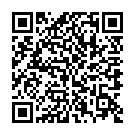|
|
|
| Module code: MST2.PH3 |
|
|
4V+3PA (7 hours per week) |
|
8 |
| Semester: 3 |
| Mandatory course: yes |
Language of instruction:
German |
Assessment:
Project work
[updated 05.10.2020]
|
MST2.PH3 (P231-0064) Mechatronics and Sensor Technology, Bachelor, ASPO 01.10.2019
, semester 3, mandatory course
MST2.PH3 (P231-0064) Mechatronics and Sensor Technology, Bachelor, ASPO 01.10.2020
, semester 3, mandatory course
|
105 class hours (= 78.75 clock hours) over a 15-week period.
The total student study time is 240 hours (equivalent to 8 ECTS credits).
There are therefore 161.25 hours available for class preparation and follow-up work and exam preparation.
|
Recommended prerequisites (modules):
MST2.PH1 Physics 1
MST2.PH2 Physics 2
[updated 16.09.2020]
|
Recommended as prerequisite for:
MST2.ATO Atomic and Solid-State Physics
MST2.SE2 Sensor Technology 2
[updated 02.03.2021]
|
Module coordinator:
Prof. Dr. Martin Löffler-Mang |
Lecturer:
Prof. Dr. Martin Löffler-Mang
[updated 13.02.2019]
|
Learning outcomes:
After successfully completing this course, students will have mastered the basics of vibrations and waves. They will be able to independently set up a differential equation based on a balance (forces, energy, currents, etc.) and find suitable solutions. They will be able to understand analogies and can transfer the repsective principles to other areas of physics. Students will be able to design and conduct their own simple experiments and interpret the results.
In addition, the students will be able to carry out small projects. They will be familiar with the brainstorming process for brainstorming ideas, be able to plan resources, allocate their project work time and finally settle the project costs. They will be able to work together in teams, solve minor conflicts themselves and present their own project results to the public.
[updated 05.10.2020]
|
Module content:
The course deals with physics topics and provides an introduction to project management.
Physics topics:
1. 2.1 Harmonic oscillations
2. 2.2 Damped oscillations
3. Forced vibrations and resonance
4. Superposition of vibrations
5. One-dimensional and harmonic waves
6. Water waves, sound waves
7. Electromagnetic waves
8. Wave optics
Project management:
1. Brainstorming
2. Planning resources
3. Time management
4. Project cost accounting
[updated 05.10.2020]
|
Teaching methods/Media:
The course is divided into an experimental physics lecture part, as well as workshops and seminars on project management. In an independent teamwork phase in the last weeks of the semester, students will plan, built and present exhibits for the "Open House". The examination will take place on the day of the "Open House", the project results will be publicly displayed, summarized on a poster and students will provide technical documentation.
[updated 05.10.2020]
|
Recommended or required reading:
Alonso, Finn: Physik
Hecht, Zajac: Optics (Optik)
Hering, Martin, Storer: Physik für Ingenieure
Stößel: Fourier-Optik
Lindner: Physikalische Aufgaben
Löffler-Mang: Optische Sensoren
Handbuch Projektmanagement Band 1 und 2, GPM Gesellschaft für Projektmanagement, Verlag TÜV Rheinland
Einführung in die Allgemeine Betriebswirtschaftslehre, Wöhe, Verlag Vahlen
[updated 05.10.2020]
|


